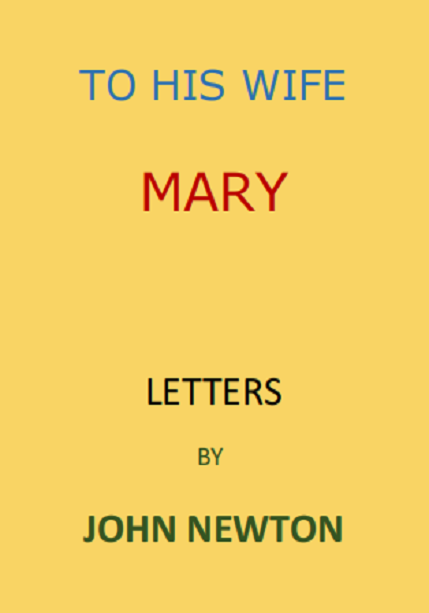John Newton (1725–1807) is best remembered today as the author of the beloved hymn Amazing Grace and as a former slave trader who became a passionate advocate for abolition. However, beyond his public ministry and writings, Newton was also a devoted husband. His letters to his wife, Mary “Polly” Catlett Newton, offer a deeply personal glimpse into his heart—filled with love, faith, and longing.

To his wife Mary.
Letters by John Newton.
John Newton’s wife:
John Newton’s wife was Mary “Polly” Catlett. They got married on February 1, 1750. Mary Catlett was the daughter of a prominent London merchant.
She provided support and companionship to Newton throughout their marriage. They had no biological children of their own, but they did adopt two daughters. Mary Catlett passed away in 1790.
Mary Catlett was the great love of Newton’s life. They married after years of separation, and throughout their marriage, Newton wrote to her frequently, especially when duty kept them apart. These letters reveal not only his deep affection for Polly but also his reflections on faith, providence, and the struggles of life. His words are marked by tenderness, spiritual encouragement, and an abiding trust in God’s sovereignty.
This collection of letters serves as both a window into an 18th-century Christian marriage and a testament to Newton’s transformation from a wayward sailor to a devoted husband, pastor, and hymn-writer. They offer inspiration to readers today, demonstrating how faith and love can sustain a marriage even through trials and distance.
Whether you are drawn to these letters for their historical insight, their spiritual wisdom, or their romantic devotion, may they encourage and uplift you as they did Polly so many years ago.
First letter of the book:
My dearest,
Before this reaches you, your brother will have told you how easy
and composed he left me. Indeed, I wonder at myself. But the
Lord has been very gracious to me, and fulfils his promise of
giving me strength according to my day. My mind is not
distressed. My companions in the coach are civil and agreeable in
their way; but I had rather have been alone; for to commune with
God and my own heart, would be much more pleasing than the
empty, amusing chit-chat I am engaged in at present.
I was enabled this morning to commend you to the Lord’s
blessing, with much comfort. And I have a cheerful hope that He
will raise you up in due time; and that we shall again have a
happy and thankful meeting. Until then, let us attend to present
duty, and keep close to him by humble prayer, and a renewed
dependence upon the blood of Jesus. Let us, while the rod is upon
us, inquire into the meaning of it, and hear his voice by it; let us
bow to his chastisement, and acknowledge that we have rebelled
against him, and that he afflicts us far less than our iniquities have
deserved. Then we may be assured, that though He causes grief,
He will have compassion; and will not only deliver us—but give us
to see, and to say, that it was good for us to have been afflicted.
I esteem it a mercy that you found some mitigation of your pain,
and some symptoms of amendment, before I left you. But, had I
been called away in the hour of your greatest extremity, I ought to
have relied on the Lord’s goodness, and to have been resigned to
his will. But, alas! how weak is my faith!
I am in perfect health, and not uneasy for you. To be sure I think
of you continually—but my trust in God bears me up. I shall
endeavor to write by every post—but, if one should pass me upon
the road, I hope you will not be anxious. The Lord is my guard and
my guide.
You maybe like some of John Newton’s other books:
John Newton’s autobiography: Through many dangers.